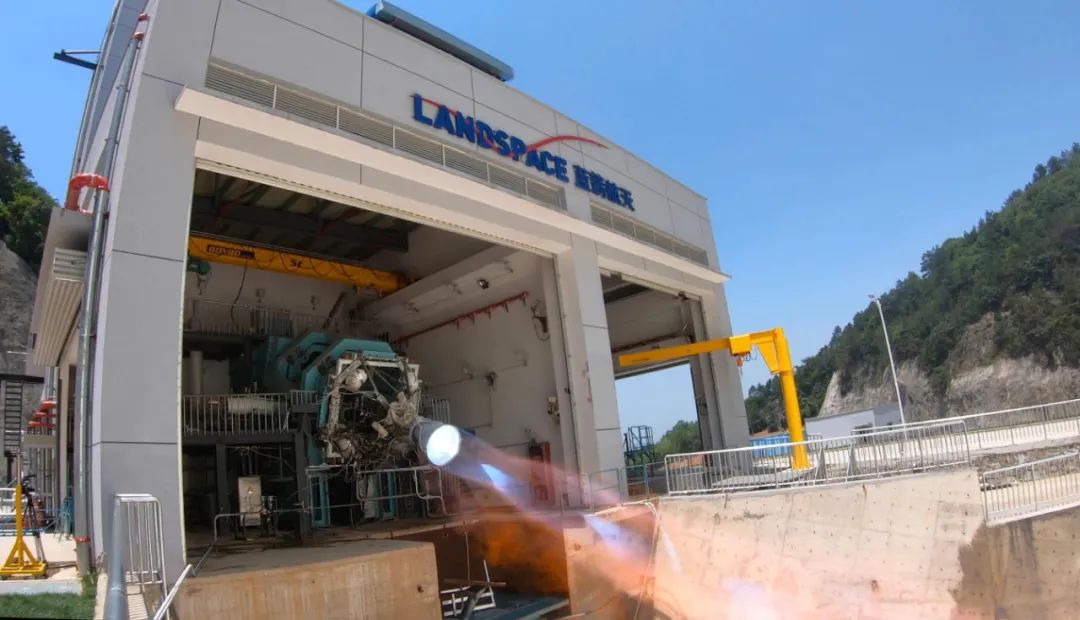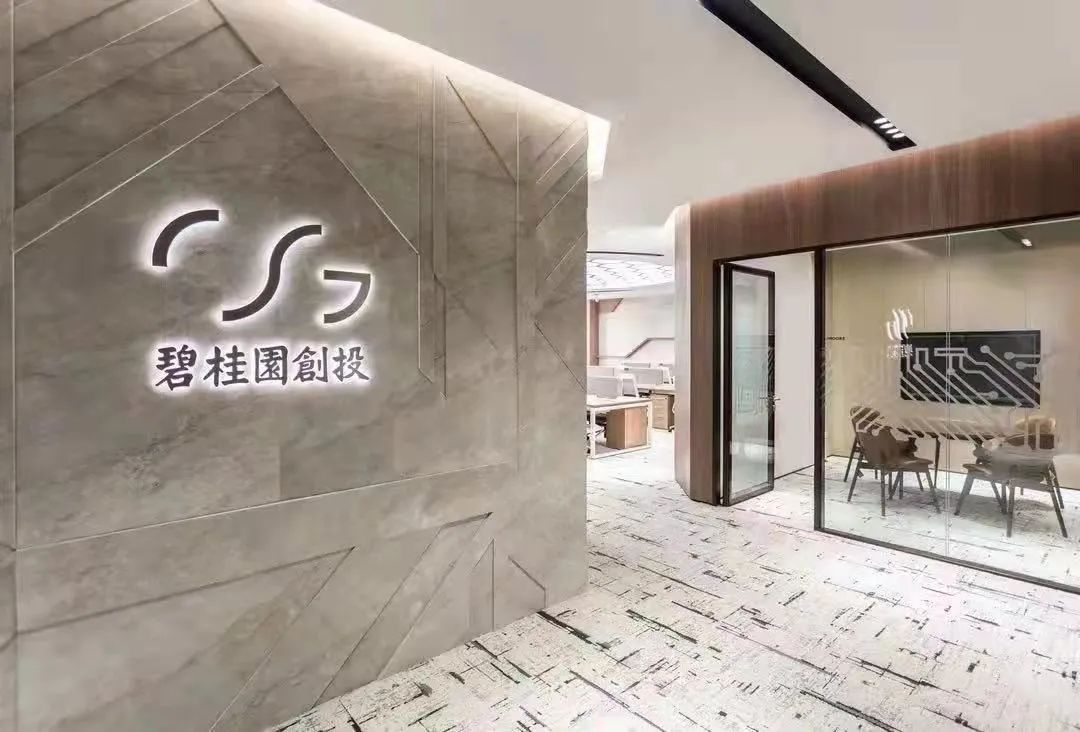On September 14, 2021, during a heavy rain, the office on the 23rd floor of the Dinghe Building in Futian, Shenzhen, was very quiet. The workspace consisted of rows of five-person long desks without partitions, accommodating hundreds of people, most of whom were likely in closed-door meetings in various conference rooms.
“If you come over later this week, you won’t see so many people; they are all out inspecting projects,” said Niu Ruolei, a partner at Country Garden Venture Capital, who had just finished the previous meeting.
A team of over a hundred focused on primary market investments is rare in China, and they have been established for less than three years, with over 50 publicly disclosed investment projects, most of which are industry leaders. In 2019, they invested 500 million yuan in a rocket company, which remains the largest single investment record in China’s commercial aerospace sector; from the publicly disclosed projects, they are also one of the largest market-oriented investment institutions in China’s semiconductor industry in terms of total investment in 2021.
How did all this happen?

▲ Country Garden Headquarters

Strangers Entering the Semiconductor Industry
On May 20, 2020, Unisoc (Shanghai) Technology Co., Ltd. (hereinafter referred to as “Unisoc”) completed its equity restructuring, issuing 5 billion yuan in new shares and transferring 7.366 billion yuan in old shares, bringing in 24 new shareholders including the National Integrated Circuit Industry Investment Fund. After the restructuring, Country Garden Venture Capital acquired a 2.52% stake in Unisoc. This marked Country Garden Venture Capital’s first appearance in the semiconductor industry, and it was a remarkable debut.
Unisoc is a leading enterprise in China’s integrated circuit design industry and the only main chip platform provider in mainland China capable of producing 5G chips that have been successfully commercialized. To strengthen its R&D in core technologies and products such as 5G and the Internet of Things and to form a core competitive advantage, Unisoc’s capital increase and equity transfer projects were listed on the Beijing Stock Exchange in October 2019, attracting competition from various capital sources.

▲ Unisoc
According to the selection plan, in addition to considering investment quotes, the comprehensive strength of the intended investors and their ability to provide support for the company’s development, market management, operational enhancement, and R&D capability, as well as the degree of fit with the financing party, will also be important factors in consideration.
“Why are you investing in semiconductors?” Niu Ruolei has been asked this question repeatedly. Many companies prefer to bring in industry capital from within the sector, as they understand each other better. To many, some industry capital may seem like impulsive investment rather than systematic, market-oriented investment institutions.
Niu Ruolei explains to them, “Actually, our group is originally a high-tech comprehensive enterprise.”
At its inception in January 2019, many of Country Garden Venture Capital’s investments were centered around Country Garden’s main business—real estate, robotics, and agriculture. For example, upstream raw materials are suppliers for real estate construction; downstream real estate transactions intersect with Country Garden’s business. Similarly, starting from robotics, they naturally turned their attention to chips, as Country Garden’s community IoT scenarios are also highly overlapping with chips, with smart communities and smart homes being part of its downstream industry chain.
Unisoc is undoubtedly the absolute leader in China’s chip industry, but convincing them to accept investment is no easy task.
Niu Ruolei admits that the hardest part is getting the first meeting and the opportunity for communication. After the news of Unisoc’s equity trading listing came out, Country Garden Venture Capital finally contacted them through financial advisory institutions, the Beijing Property Rights Exchange, Zhongguancun, and other channels to gain the investment opportunity.
“Convincing them to accept our investment takes time; after convincing, the time left for us is short, so we often have to prioritize our investment research work,” Niu Ruolei said. During their first meeting, they provided a detailed industry research report to the other party, sharing their views and insights on the industry and explaining why they wanted to make high-tech investments, convincing them that Country Garden Venture Capital would be a friendly investor with long-term capital advantages.
Unisoc’s performance saw rapid growth in the first half of 2021, with revenue increasing by 240% year-on-year from January to June; Country Garden Venture Capital also gained more trust from Unisoc.
In April 2021, Unisoc announced the completion of a new round of financing of 5.35 billion yuan. According to data from third-party platforms such as Tianyancha, Country Garden Venture Capital’s shareholding ratio increased to 5.529%, becoming its fourth-largest shareholder.
Unisoc is the first project for Country Garden Venture Capital to enter the semiconductor field, helping them open up the industry landscape, and soon they also knocked on the doors of companies like BYD Semiconductor and Biran Technology.
“When entering any new industry, we hope to invest in the most core enterprises in the industry; if we can’t do that, we would rather not enter,” Niu Ruolei stated. Investing in the first one may be the hardest, but once the first deal is made, subsequent progress becomes much easier.

The Outlier in the Investment Portfolio
Looking through Country Garden Venture Capital’s project basket, Blue Arrow Aerospace might be the most unconventional one.
In December 2019, Blue Arrow Aerospace Technology Co., Ltd. (referred to as “Blue Arrow Aerospace”) announced the completion of 500 million yuan in Series C financing, with Country Garden Venture Capital as the investor.
Before the establishment of Country Garden Venture Capital, an international investment bank had introduced investment opportunities in SpaceX to Chinese capital; after the establishment of Country Garden Venture Capital, they began researching China’s commercial aerospace industry.
“We spent nearly half a year interviewing all the companies in the industry and concluded that the successful path would still be to follow SpaceX’s model, focusing on independent R&D and heavy assets,” Niu Ruolei said. The reason for choosing Blue Arrow Aerospace is that while the entire industry is in its infancy and most people are opting for a light asset approach, they insist on building their own rocket engine test stand, their own factory, and launch sites, showing a very firm attitude.

▲Blue Arrow Aerospace
Niu Ruolei recalls that during interviews with several industry experts, they all gave high praise to the Blue Arrow Aerospace team.
Before Country Garden Venture Capital, Blue Arrow Aerospace had received five rounds of financing totaling about 900 million yuan, all of which were invested in early-stage R&D. The investment from Country Garden Venture Capital is referred to by many as “a potential game-changer in the history of China’s commercial aerospace.”
Blue Arrow Aerospace was established in June 2015 and received 10 million yuan in angel round financing from the Chuangxiang Tianxing Fund. In the second half of 2016, they began developing liquid engine rockets. In 2018, they launched China’s first private aerospace flight at the Jiuquan Satellite Launch Center, where the “Zhuque-1” successfully separated its first and second stages, but the third stage failed to enter orbit correctly.
Fortunately, on May 17, 2019, Blue Arrow Aerospace successfully tested its first 80-ton liquid oxygen methane engine, “Tianque,” becoming the first private enterprise in China to complete a full system test. This engine is the third large-thrust liquid oxygen methane rocket engine in the world to complete full system testing after SpaceX and Blue Origin, marking the first time a private Chinese enterprise has mastered all key technologies for hundred-ton liquid rocket engines.
Country Garden Venture Capital decided to invest 500 million yuan in Blue Arrow Aerospace. This figure was jointly calculated to be sufficient to build a rocket and have funds for two additional launches. Niu Ruolei said, “Rocket launches require patience; we cannot expect success on the first attempt, nor do we want the funding to only be enough for one launch.”
In the past, the investment model in the internet sector hoped for companies to iterate quickly and continuously raise funds to scale up, but hard technology is different. In Niu Ruolei’s view, the milestones in hard technology are very clear; there is no output between one milestone and the next, and sufficient funds must be available to support reaching 100% completion before value can emerge.
Niu Ruolei admits that when evaluating Blue Arrow Aerospace in 2019, he viewed it more as a financial investment. Now, with the rise of the aerospace boom, its valuation has increased significantly. In September 2020, Blue Arrow Aerospace announced the completion of 1.2 billion yuan in Series C+ financing, with Country Garden Venture Capital leading the investment again.
However, to date, Country Garden Venture Capital has not invested in a second company in the same field. In Niu Ruolei’s view, in the “rocket-satellite-application” industrial chain of aerospace, the bottleneck of rocket launches has not yet been resolved, and the timing for downstream investments has not arrived; “we are continuously monitoring.”

Dumbbell Strategy, Ecological Layout, and Digitalization Support
At its inception, Country Garden Venture Capital locked onto the hard technology track. Their assessment of the trend of China’s economic development is that, from the perspective of the factors driving economic growth, labor has peaked, the role of investment is diminishing, and total factor productivity has become the most important variable; new technologies and new models are the most worthwhile investment directions for the future.
Additionally, they also see that the era of frenzied growth across industries has ended, entering an era of stock game, with average industry profit margins declining significantly and entering a phase of highly dynamic integration. “As long as it is a leading enterprise in a niche industry that can become an industry integrator, we are willing to participate in its growth,” Niu Ruolei said. This is not limited to conventional technology companies; many traditional industries’ integration and enhancement often occur through digitalization, informatization, and refined management and transformation, which is also part of the ongoing digital and intelligent transformation in Chinese society.
Some of the earliest projects invested by Country Garden Venture Capital, such as Beike, are digital real estate service platforms, and Kuaishou is a digital content platform; based on this, they continued to invest upstream in the industry, such as Qinhuai Data, etc. These are representative enterprises of digitalization across various industries.

▲Country Garden Venture Capital
By investing along the upstream and downstream of Country Garden’s main business and extending from the invested enterprises outward, while cultivating the industrial ecosystem, they have also formed Country Garden Venture Capital’s “dumbbell strategy”: one end consists of core enterprises in the later stages of development, while the other end consists of early projects surrounding these core enterprises—A rounds or even pre-A rounds, with the middle segment being continuous investments in follow-up B and C rounds of already invested A round projects.
Country Garden Venture Capital truly began to engage in early projects in the first half of 2020. If in the PE stage, the single investment amount is large, the projects are relatively mature, and there is a stable valuation logic and framework, making judgment relatively easy; early projects have many investors, and competitors are often pure financial VCs. Country Garden Venture Capital excels in providing comprehensive industrial empowerment to enterprises, but it is challenging to make value judgments and filter good projects among a vast number of early projects.
To this end, Country Garden Venture Capital has developed a complete set of digital management systems called “Fengling,” which standardizes the investment research process. It achieves full coverage of research in each field, clearly categorizing projects as actively entering, cautiously entering, or not entering at all; “Fengling” can provide a panoramic view of the entire investment process: “industry selection – project judgment – investment decision – post-investment management,” etc. Records of interviews, meeting discussions, decision points, and supplementary materials for each project are all presented in a one-stop manner within the system. The process is highly standardized and centralized to enhance the efficiency of investment decision-making.
“We have engaged with and invested in the best digitalization companies across various industries in China; digitalization is their core competitiveness, and in turn, they have also inspired us,” Niu Ruolei said.